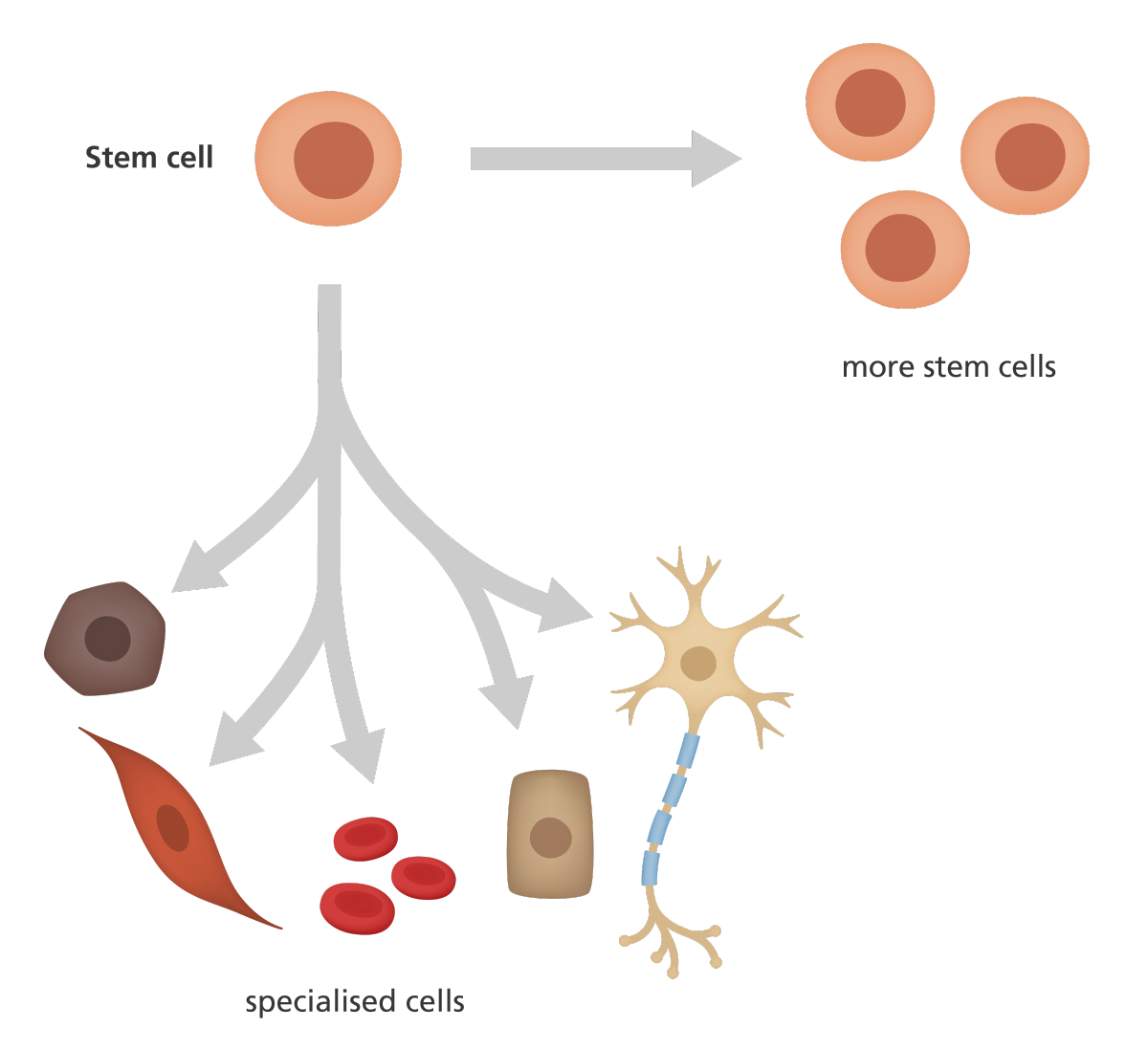-
A tissueA group of cells with a simular structure and function. Different tissues are grouped into organs.
-
Multicellular organismsMulticellular organisms are made of lots of cells.
-
DifferentiationDifferentiation is when a cell changes to become specialised for a particular job. It occurs as cells divide. Most animals cells differentiate at an early stage. Many types of plant cells keep the abiltity to differentiate throughout life.
-
Xylem cellsXylem cells transport water and minerals from the roots around the plant.
-
Phloem cellsPhloem cells are involved in transaction which means the transport off dissolved sugars made in the leaves around the plant.
-
Embryonic stem cells benefits- They can grow into any type of cell found in the body. - All tissues and organs can be grown. - They could be used to replace cells that have been damaged or destroyed.
-
Embryonic stem cells risks- Embryos specifically made and then discarded. - It can be difficult to obtain/store embryonic stem cells. - Patients could be exploited. - Transplant issues and organs may be rejected by the immune system.
-
Adult stem cells benefits- As the cells are from the same body they would not reject their own cells.
-
Adult stem cells risks- Can only differentiate into cells from the type of tissue where they are found. - Some human stem cells growing in labs that researches have used in experiments to treat serious diseases contain serious cancer-causing mutations.
-
Theraputic cloning benefits- Only a small chance the cells will be rejected. - Organs have an exact match of DNA. - Help create vital organs. - Prevents diseases.
-
Theraputic cloning risks- Embryos are specifically made and then discarded. - Ethical issues - Viruses can be transferred. - Cost is high. - Extracting eggs from a female is costly and painful.
-
Umbilical cord stem cells- Rich source of stem cells. - Possible use in the future for the child. - No rejection. - No ethical issues. - They could be used to replace blood cells that have been destroyed or damaged.
-
Umbilical cord stem cells- Have to pay to store the blood.


